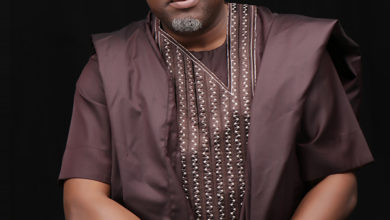
- Lagos is changing. Lagos has changed, It’s the only city in Nigeria where you are likely to find some functioning traffic lights. In fact, Lagos is the first city that returned the idea of traffic lights after they had been abandoned nationwide. With the surging crowds in Lagos, the administrators work hard daily to ensure things do not break down entirely.
Say what you like, Lagos is changing and in a good way. I personally find not much for which to
condemn that great city state each time I visit. No city state is perfect. So many people rushing in one
direction on a daily basis could result in huge snarl-ups. In fact, the traffic snarls in Lagos are nowhere
near what is seen in many cities of China, Japan, UK or US. And the deployment of entities like
LASTMA means that we have thinking people in government there that are ready to solve local problems
using local solutions. I often wonder about the big ‘agbero’ problem of which guber contestants
complained just a few months ago during the campaign. Lagos became a ping pong in the han ds of
politicians nationwide. It wasn’t Doherty, Jandor and Gbadebo that spoke about Lagos’ agbero problem.
Everybody in opposition parties railed on end about agberos in Lagos, I was worried that they had
developed the ability to snatch bags from flying airplanes. For me, I don’t come across these agberos that
much. But that doesn’t mean they don’t exist. I believe that statistically, Lagos is much safer than it was
before. We don’t hear of daredevil armed robbers that much. Even kidnapper have taken their trades
elsewhere. Indeed, many Nigerians relocate to Lagos from troubled parts of Nigeria, for safety. I don’t
take it likely with anyone who tries to run down our own best attempt at a modern society. Those who
administer Abuja – a city established on a clear template and build from the scratch – have proven
consistently to be deficit of vision and grossly lacking in capacity.
Lagos is changing. Lagos has changed, It’s the only city in Nigeria where you are likely to find some
functioning traffic lights. In fact, Lagos is the first city that returned the idea of traffic lights after they had
been abandoned nationwide. With the surging crowds in Lagos, the administrators work hard daily to
ensure things do not break down entirely. Development has spread in Lagos, with new cities opening up in the Lekki-Epe axis, while old areas such as Agege – Alakuko, and of late, Mile 2 towards Badagry,
getting a new lease of life.
But what concerns me today is LagRide. This is the rideshare idea put together by the government of
Babajide Sanwoolu. Without as much as advertisements, this idea promises to tell a different story of that
city. When I discussed this with someone, he said Lagos might be heading towards being a Dubai with
the LagRide idea. So, LagRide are these white-and-blue taxis that operate under some Public-Private
Partnership with the Lagos State Government. The state government does not own ay taxi, but enables the
car manufacturer – which are Chinese I think – to sell to investors and drivers under some lease
agreement. The idea leans on the examples of Uber and Bolt, in deploying technology to ensure the
fidelity of all transactions. But LagRide is holding up better than the now tired Uber and Bolt in terms of
standards, at least in Nigeria.
Uber and Bolt seem to have totally lost the whole idea of why they were a revolution when they appeared
in our environment. The cars listed are increasingly dilapidated, their drivers seem to be getting lesser
trainings or none at all. They no longer clean their cars before picking passengers and are now going back
to being like their Lagos yellow taxi fathers and grandpas, even in terms of attitude. It is now most likely
that your next ride driver is rude, uncouth, unwashed, abusive, and even criminal. On social media
presently circulates a short clip of what appeared to be one of those drivers who openly battled with a
hard on maybe because his rider showed too much laps. Uber and Bolt drivers in Nigeria now get up to all
sorts of pranks – they show up with cars totally different from what is listed, and what is worse, in the
Lagos local airport (MMA2M precisely), they routinely frustrate riders by picking and canceling your
ride simply to obtain your phone number and names through the app and then negotiate much higher
prices with you after having taken you off the radar. I had written about this very recently here (see
https://www.thecable.ng/the-unraveling-of-uber-and-bolt-rideshare-business-models-in-
nigeria/amp?fbclid=IwAR1hS0Cie4LY6ULRyGBzh_tgy9u_HxRQBLc6FXwgsd51n7e68oFIhcu5Suw)
and exactly nothing happened. Uber and Bolt do not really care about the business in Nigeria anymore. I
guess we are as usual, too troublesome. I also think they will not mind losing the business.
And this is where LagRide comes in. Unlike Uber and Bolt, I think for now there is still the fear of
officialdom. These are taxis emblazoned with Lagos State colors, so the drivers seem to be behaving
themselves. They hardly cancel on you once they pick your ride. They have no reason to. The
arrangements ensure that they are incentivized to pick rides and record their movements officially. The
cars are (still) fairly new. There is at least one camera installed in the car to record every ride and it
captures even the conversation in the car. This is referred to in any eventuality and gives both rider and
driver a lot of confidence. There hasn’t been any untoward even recorded about LagRide even though I
understand just 1,000 cars were deployed in the first phase, with many a ‘big man’ having bought the N7
– N8 million Chinese cars and parked them at home. One driver said he took someone to Redeemed
Camp and found more than 100 of the LagRide cars parked there. LagRide cars are often neat and their
drivers appear well-trained and cautious. I reckon they are required to bring guarantors. In spite of the fact
that most of them work for the car-owners, an average driver takes home at least N150,000 per month.
The arrangement for now is that two statutory payments are made daily – N6,000 for the app company,
and N9,000 for the finance company who bankrolled the car. Whatever is left is for fuel and the driver,
except where there is an owner, who would collect between 20% and 40% of daily takings (before
fueling). The only complaint gathered from drivers is that the state government should step in and reduce
the exploitation (which does not occur often).
This writeup is therefore aimed at urging Lagos State government to double down on this idea which will
have very salutary impact on the image of the state apart from providing jobs for thousands of young
drivers. Whether detractors like it or not, Lagos is rapidly changing for the better and even better days are
coming. Lagos may be approaching the level of a UAE if these branded taxis are more available. The fact
that they are branded lends brand equity to Lagos. More tourists and businesspeople will go to Lagos just
for that added confidence and the idea that Lagos is more organized. I am writing this because one may
not assume that those in government are aware of the advantages that they sit upon. A third eye like mine
may be the needed impetus for more investment. I understand there are some 3,000 new cars which had
been promised. Lagos cannot wait for this great initiative which benefits from technology as well. The
Global Positioning Systems on the LagRide cars are working perfectly. Perhaps like Singapore and
Kigali, Lagos does not need Uber or Bolt. Governor Sanwoolu should ensure that this advantage is taken
right now and that this idea does not die out. We don’t get this lucky very often.



